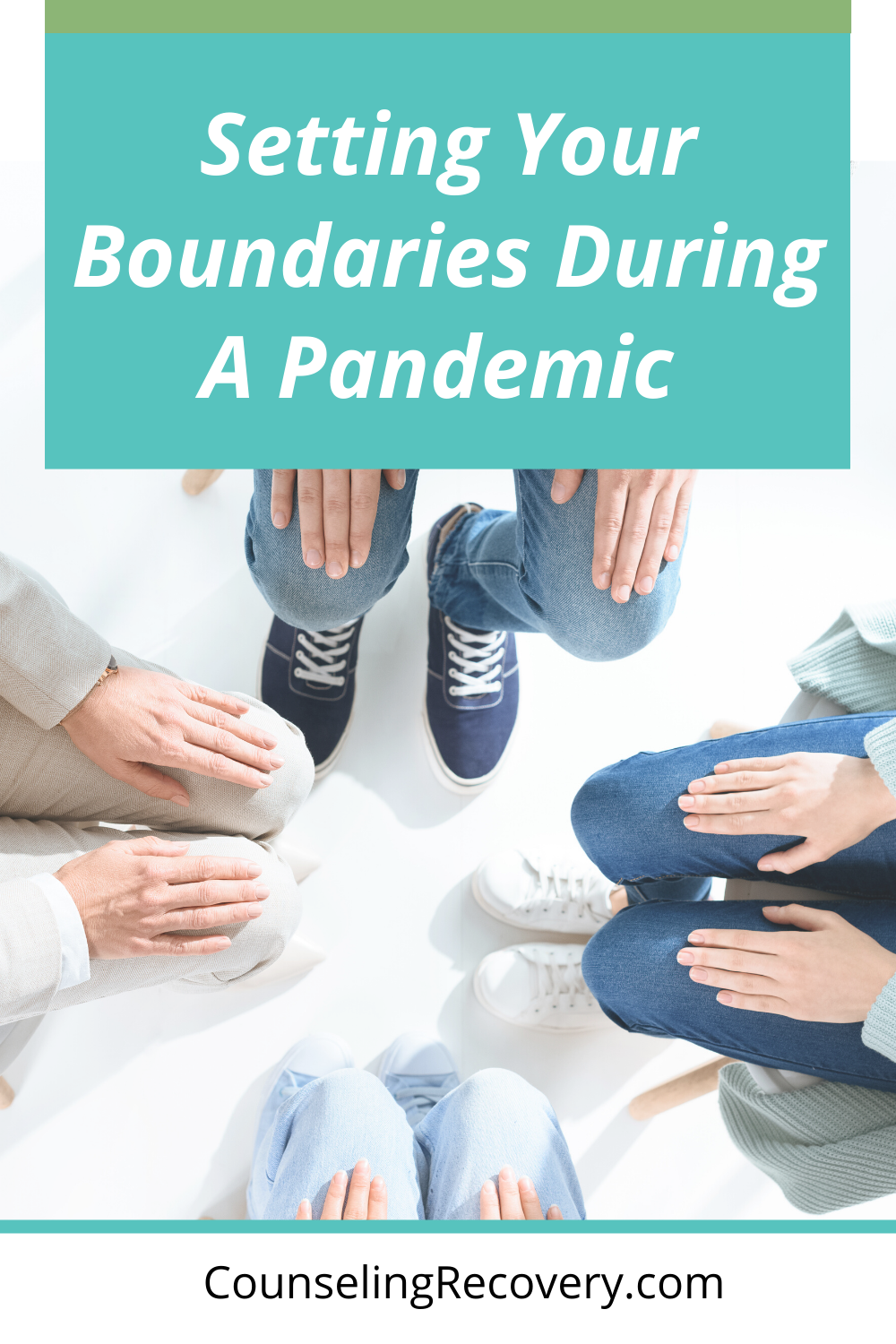Setting Boundaries During a PandemIc
Personal boundaries have become a hot topic during this pandemic.
Most people are trying hard to stay safe but not everyone is practicing the guidelines. We’ve seen videos posted on social media of people getting upset when asked to wear a mask. Going out in public has become a stressful event instead of an everyday occurrence.
Due to the virus, people are feeling a little anxious when leaving their homes. Those who are living with elderly family members or loved ones with pre-existing health conditions are especially vulnerable right now. Being constantly aware our personal boundaries has become vital to keep ourselves safe. Unfortunately it’s also emotionally exhausting.
In this blog you’ll learn how to practice physical and social boundaries during this pandemic. While I’m not condemning those who choose not to wear a mask, everyone needs to be respectful while considering their own boundaries.
A boundary is a limit that protects you physically or emotionally from being harmed. Setting a healthy boundary is something you do to honor yourself and what works for you.
Difficult Choices
Although wearing a mask is highly recommended, some people don’t recognize this as a boundary meant to protect everyone. Instead, they consider it a violation of their civil rights. Unfortunately, it’s become a political issue rather than a safeguard to protect us all.
Although this has turned into a heated debate, getting in someone’s face or publicly shaming them isn’t going to help. It just contributes to the hate.
So how do we keep our boundaries during this difficult time?
First, consider your own limits. Each person decides their own level of risk. While boundaries are an individual choice, setting limits doesn’t have to be confrontational or provocative.
Feeling Uncomfortable with Setting Boundaries
When you’re not comfortable setting boundaries, advocating for yourself can be challenging. Living through a pandemic IS stressful as trying to protect ourselves has become a major stressor.
If you’re a people pleaser or someone who avoids conflict, wearing a mask or social distancing can feel risky when others don’t agree. Some might accuse you of overreacting or being a hypochondriac.
Don’t let others dictate your boundaries. When those around you aren’t practicing safe behavior, you may need to politely excuse yourself.
Healthy boundaries don’t always need to be communicated. I have silently excused myself from uncomfortable situations without having to explain why.
This is the easiest way to keep yourself safe.
Identify Your Personal Boundaries
Next, think about what you need right now. For instance, when you’re in public, how much physical distance will you need to feel safe? Though being at least 6 feet apart is recommended, some will prefer more or less space depending on their own comfort level. Keeping ourselves safe now requires consistent effort.
Sadly, we cannot expect everyone to do the same. The mistake I made early on was assuming that everyone had the same concerns around their own safety.
Some people simply do not.
Personal Story of Boundaries
Right after sheltering in place started, two women were next to me without wearing masks. Even though this lasted for only a few seconds, I got surprisingly angry. Suddenly I felt really vulnerable and within minutes my nerves were shot.
While I did say something (which didn’t make a difference anyway) getting into an argument with complete strangers wasn’t going to be worth it.
I left feeling emotionally drained but I learned a valuable lesson. I cannot expect others to keep me safe. Managing my physical safety is my responsibility no matter what other people are doing.
Let yourself opt out of any situation that make you feel unsafe. This creates an important physical boundary that gets easier with practice. Emotionally, it can feel like you’re on high alert but this has become the “new normal” for the foreseeable future.
We need to protect everyone, not just ourselves.
Creating Your Social Boundaries
Social boundaries are also a big topic right now. Staying connected to friends and family is important for our mental health. How you want to socialize will depend on your unique situation, physical health and personal beliefs.
This may take some negotiating. For instance, one couple we’re friends with didn’t feel comfortable doing an outdoor get together (with social distancing) so we did a Zoom call instead. Those who need the most physical space should get it without any fuss. That’s how we can stay in support of each other during this crisis.
Those who are at higher risk may choose not to socialize outside their homes. Their physical boundaries will need to be firm as they try to avoid exposure to the virus.
When contemplating your own social boundaries, what are you comfortable doing?
Do you prefer outside events where the risk may be lower or indoor gatherings if everyone is masked?
Are you going to stay home instead and shelter in place?
Will you attend social events or do you prefer to pass on them right now?
Being secure in our own limits takes time. Don’t expect yourself to be awesome at setting boundaries right away. This pandemic is still new so give yourself some grace. No one is doing this effortlessly. Having trusted family and friends who support our boundaries can encourage us to keep setting them.
Final Thoughts
When I see people not wearing masks I still feel afraid but I have a choice. Boundaries help us take care of ourselves, not change what other people are doing. Although it’s good to verbalize what we need, actions speak louder than words. Setting boundaries can be as simply as walking away.
Although people have different opinions regarding the pandemic, by respecting each other’s boundaries we can get through this together in peace.

